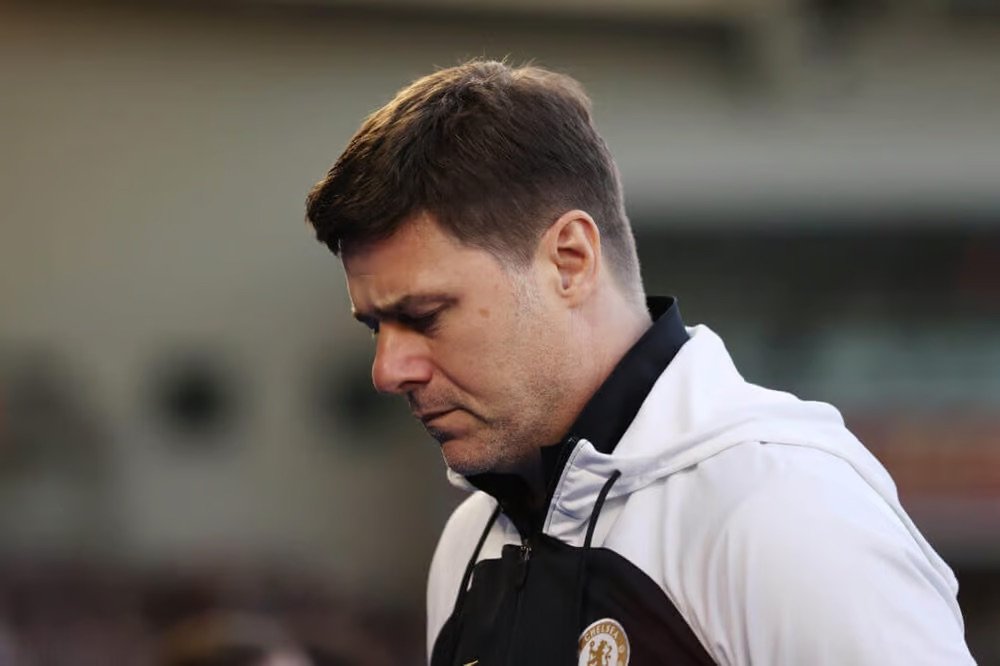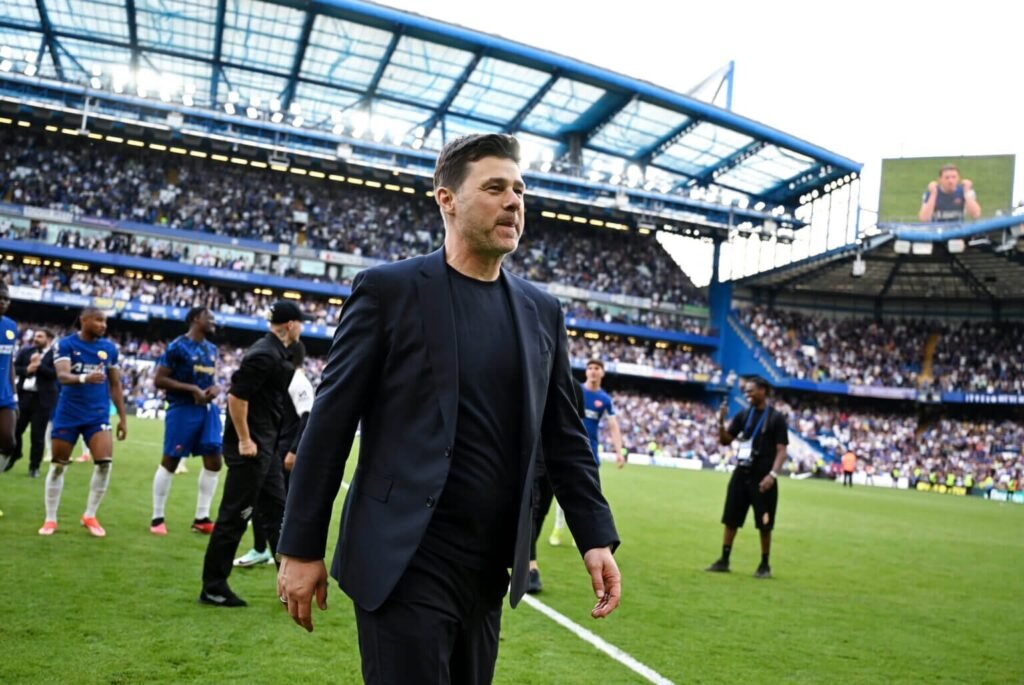- Pochettino leaves Chelsea by mutual consent after less than 11 months.
- His tenure was marked by mixed results, dividing fan opinion.
- Chelsea now seeks a new manager to address defensive and attacking challenges.
Mauricio Pochettino has officially left his position as Chelsea head coach by mutual consent after less than 11 months in charge.
The Argentine manager’s departure comes after an internal review of the club’s 2023-24 season performance, led by co-sporting directors Paul Winstanley and Laurence Stewart. This decision marks a significant turning point for the London club, and it’s essential to examine the events that led to Pochettino’s exit and what it means for the Blues future.
Season Review: Ups and Downs

The Argentine tenure at Chelsea was marked by a mixed bag of results. On the one hand, he led the team to a strong finish, securing a sixth-placed finish in the Premier League and ensuring European football for the 2024-25 campaign. This was a significant achievement, considering the team’s inconsistent form throughout the season. He also oversaw a summer of squad overhaul, with the club spending over £400 million ahead of his debut season in charge. This investment brought in fresh talent and injected new energy into the team.
READ ALSO: Premier League Clubs to Vote on Scrapping VAR: A New Era for English Football?
On the other hand, Chelsea were beaten in the final of the Carabao Cup by Liverpool and exited the FA Cup at the semi-final stage to Manchester City. These defeats were disappointing, and Poch tactics and team selection were questioned by fans and pundits alike. Despite these setbacks, Pochettino’s ability to adapt and innovate was evident in the team’s improved performances towards the end of the season.
Pochettino’s Managerial Career: A Brief History
Before joining the Blues, Pochettino had a storied managerial career. He began his managerial career at Espanyol, where he spent nine years as a player in two separate spells. He then spent 16 months as head coach of Southampton in his first Premier League job before taking over at Tottenham Hotspur. During his five-year tenure at Spurs, Pochettino led the team to the final of the Champions League in 2019, ultimately losing to Liverpool. After a disappointing start to the 2019-20 campaign, he was sacked by Spurs and took a break from management before succeeding Thomas Tuchel at Paris Saint-Germain in January 2021.
At PSG, Pochettino won the Ligue 1 title in 2021-22 and the Trophee des Champions, but his tenure was marked by controversy and internal conflicts. He left PSG in June 2022, and his appointment at Chelsea was seen as a fresh start for both the manager and the club.
Analysis: Divided Opinions and Ownership Dynamics

Pochettino’s exit is likely to divide Chelsea supporters, with some sections seeing it as a chance to upgrade and others feeling that the club is going back to square one. The decision to part ways with Pochettino also shines a light on divisions within the ownership, with Todd Boehly publicly supportive of the manager but Clearlake Capital co-founders Behdad Eghbali and Jose Feliciano wielding the real power at Chelsea.
This power dynamic has been a subject of debate among fans and pundits, with some questioning the influence of the club’s ownership on footballing decisions. Pochettino’s departure raises questions about the club’s long-term vision and whether the owners are willing to give managers the time and resources needed to succeed.
What’s Next for Chelsea?
With Pochettino gone, Chelsea will now begin the process of finding a replacement. The club is expected to target a young and progressive coach, with several names already being linked to the vacancy. As the search begins, fans will be watching with interest to see who will take the reins and lead the team forward.
The new manager will inherit a talented squad with a mix of experienced players and young prospects. However, they will also face significant challenges, including the need to rebuild the team’s defense and find consistency in attack. The club’s transfer policy and recruitment strategy will also come under scrutiny, as the new manager looks to shape the squad in their image.
In conclusion, Pochettino’s departure marks the end of an era at Chelsea, and the club must now look to the future. The appointment of a new manager will be a crucial decision, and fans will be hoping for a swift and successful transition. As the club navigates this period of change, one thing is certain – the demand for success at Chelsea remains as high as ever, and the new manager will be expected to deliver.



Leave a Comment (0)